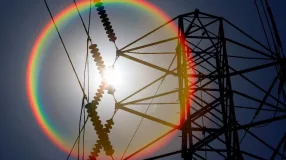Natural gas is not only critical to the United States’ energy security, but also to the energy reliability and security of our European allies and trading partners. The Biden Administration has called upon the natural gas industry to increase production to support European nations by sending additional volumes to vulnerable markets. However, simply increasing production is not enough — we must also increase the infrastructure here at home that moves natural gas from where it is produced to where it is consumed.
In a joint statement with European Commission President Ursula von der Leyen last week, President Biden promised the U.S. “will maintain its regulatory environment with an emphasis on supporting this emergency energy security objective and the REPowerEU goals.” Meanwhile, the EU stated its plans to “accelerate regulatory procedures to review and determine approvals for LNG import infrastructure.” Maintaining the current status quo of unclear and inconsistent regulatory and permitting processes will do nothing to help our allies abroad.
Prior to March 24, the Federal Regulatory Energy Commission (FERC) had not approved any major natural gas infrastructure projects since June 2021. There are currently 11 major natural gas projects pending approval before the Commission, more than half of which have their final environmental documents.
FERC’s approval is the imperative next step for these important projects. Without the additional capacity, which totals more than 12,141 MMcf/day pending currently, some of the added gas supply policymakers are calling on developers to produce will not reach American consumers or LNG terminals along U.S. coasts for export.
As today’s geopolitical realities and global energy markets have demonstrated, there is a critical need for continued investment in natural gas infrastructure. INGAA strongly encourages the Biden Administration and permitting agencies, like FERC, to act expeditiously and move these pending projects forward to ensure the reliable transport of natural gas necessary to meet our country’s energy and climate goals both at home and abroad.







